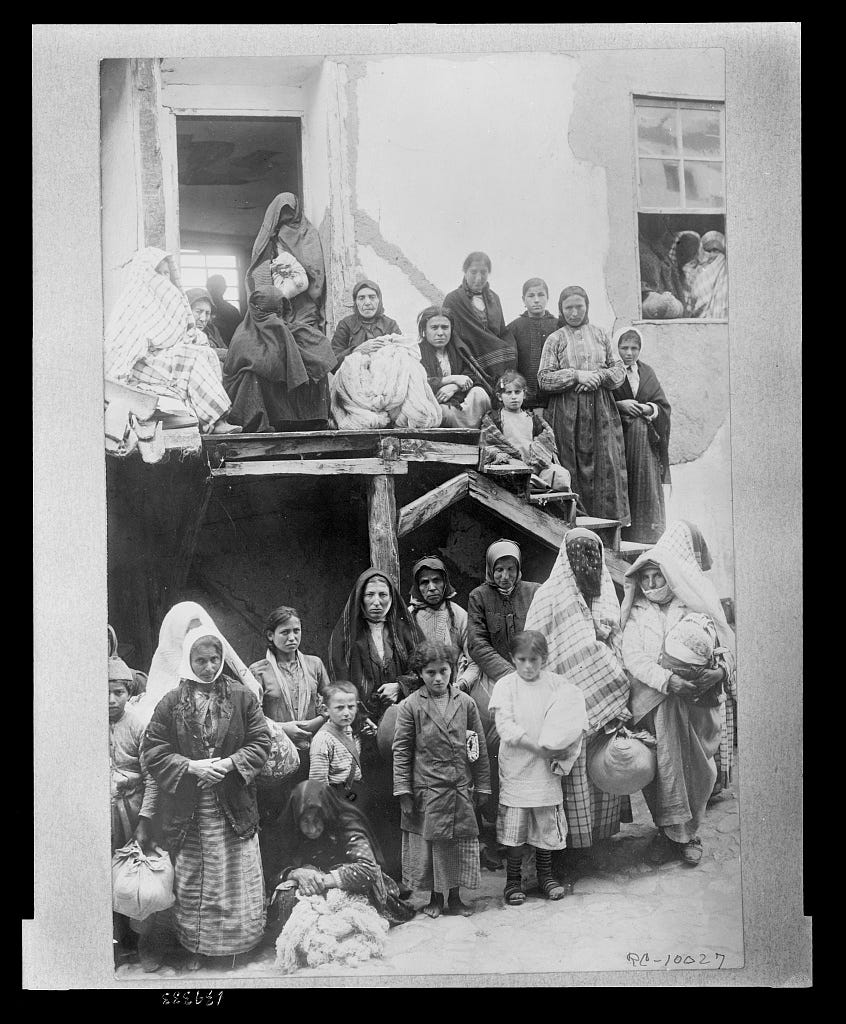Hi all,
Thank you for joining me for this week’s song, Where were You, by Sirusho.
If you’d like to hear the song before you read the background, I’ve included a YouTube video just after this article. Below that, there is another video that has an English translation of the Armenian lyrics.
Below, you’ll find my interpretation of the lyrics. I’ve written the lyrics in italics. As with most everything, there are many ways to interpret things. I invite you to leave a question or comment at the end.
Sources and notes are below the video. For Japanese students, vocabulary words in bold are provided as well.
(458 words)
A brief history
The country of Armenia is bordered by Turkey, Georgia, Azerbaijan, and Iran. It is an ancient land that dates back to the Bronze Age. It has experienced many invasions and has been ruled by various dynasties throughout its history.
The government of the Ottoman empire was located in Istanbul, Turkey. It began to lose its power from the 1900s. Under the Ottoman rulers, who were Muslim, Armenians experienced discrimination because they followed the Christian religion. When World War I began, there was a conflict between the Ottoman and Russian empires. The Ottoman government did not trust the Armenians because some of them had volunteered with the Russian Army. In 1915, the Ottomans began killing Armenian men and forced women, children, and the elderly to leave. This deportation to the Syrian desert meant that the people had no food or water, and would be raped, robbed or killed. It has been estimated that over one million Armenians died between 1915 and 1917 in this massacre ordered by government authorities.
The Turkish government denies that this event took place.
The song
The song Where were You begins on a quiet night I stand alone / I feel the air caressing through the lonely trees, but the main character does not feel calm because she remembers the horrors that her family experienced And there’s no peace / I stand alone / Within the blackness when the world is fast asleep and the violence had ceased
She asks the listener, Where were you when my life was stolen / Where were you when my home was burning in fire / Tragedy so underestimated and then demands an answer to the question of how people can deny that this event took place: How could we Let ourselves live in a world of denial.
She sings about the hundreds of thousands who were deported from their homes:
The broken dreams that we left as we fled from our soil
Why is there so many now dead, are we no longer loyal
and, after leaving, wonders where on earth they will find safety:
How can we feel safe now, where do we begin now
When the world around us doesn’t seem to care
Forgetting about what happened is not possible when you have lost not only your homeland but your family, your grandparents, your parents, aunts and uncles, and perhaps your siblings.
My shoulders carry the past
My eyes are filled with sorrow
And the silent dream in my head might never see tomorrow
Still, she continues to fight for the memory of her people and tries to think that God and those who care about humanity will do something to end genocide:
To this day, I pray I never lose my hope, I
Still believe in humans and my one true God
April 24 is Armenian Genocide Memorial Day. It is a day on which we remember the victims of the Armenian genocide of 1915.
(English translation of the Armenian lyrics)
VOCABULARY
ancient 古代
Bronze Age 青銅器時代
invasion 侵入
dynasty 王朝
empire 帝国
discrimination 差別
deportation 国外追放
massacre 虐殺
authorities 官庁
caress 撫でる
cease 止む
fled (past tense of flee) 逃げる
deny / denial 否定/否認
demand 要求
sorrow 悲しみ
humanity 人間性
genocide 大量虐殺
Sources
International Association of Genocide Scholars, 2007. https://genocidescholars.org/wp-content/uploads/2019/04/IAGS-Resolution-Assyrian-and-Greek-Genocide.pdf Accessed 24 May 2023.
Kifner, J. (2007). Armenian genocide of 1915: an overview. The New York Times, 7. https://ocw.nthu.edu.tw/ocw/upload/30/news/9820_%E5%9A%B4%E9%9C%87%E7%94%9F%E6%95%99%E6%8E%88_L4_Armenian%20Genocide%20of%201915%20An%20Overview_.pdf Accessed 24 May, 2023.
Smith, R. W., Markusen, E., & Lifton, R. J. (1995). Professional ethics and the denial of Armenian genocide. Holocaust and Genocide Studies, 9(1), 1-22. https://academic.oup.com/hgs/article-abstract/9/1/1/554133 Accessed 24 May, 2023.
The photograph in the article above:
Photograph was probably taken by photographer Tsolag K. Dildilian, who took photographs for relief organizations in Marsovan in 1919. A related photograph by Dildilian shows a woman dressed in a striped blanket and patterned face-covering similar to the one in this image. (Source: researcher A. Marsoobian, 2015).
Photograph published in: Ernest Pye, editor, Charlotte R. Willard of Merzifon: Her Life and Times (New York: Fleming H. Revell Co., 1933), between pp. 114 and 115. Caption: "Wool Industry, War-time Relief." Read more at https://www.loc.gov/item/2010650524/
Read more about Sirusho at https://en.wikipedia.org/wiki/Sirusho





